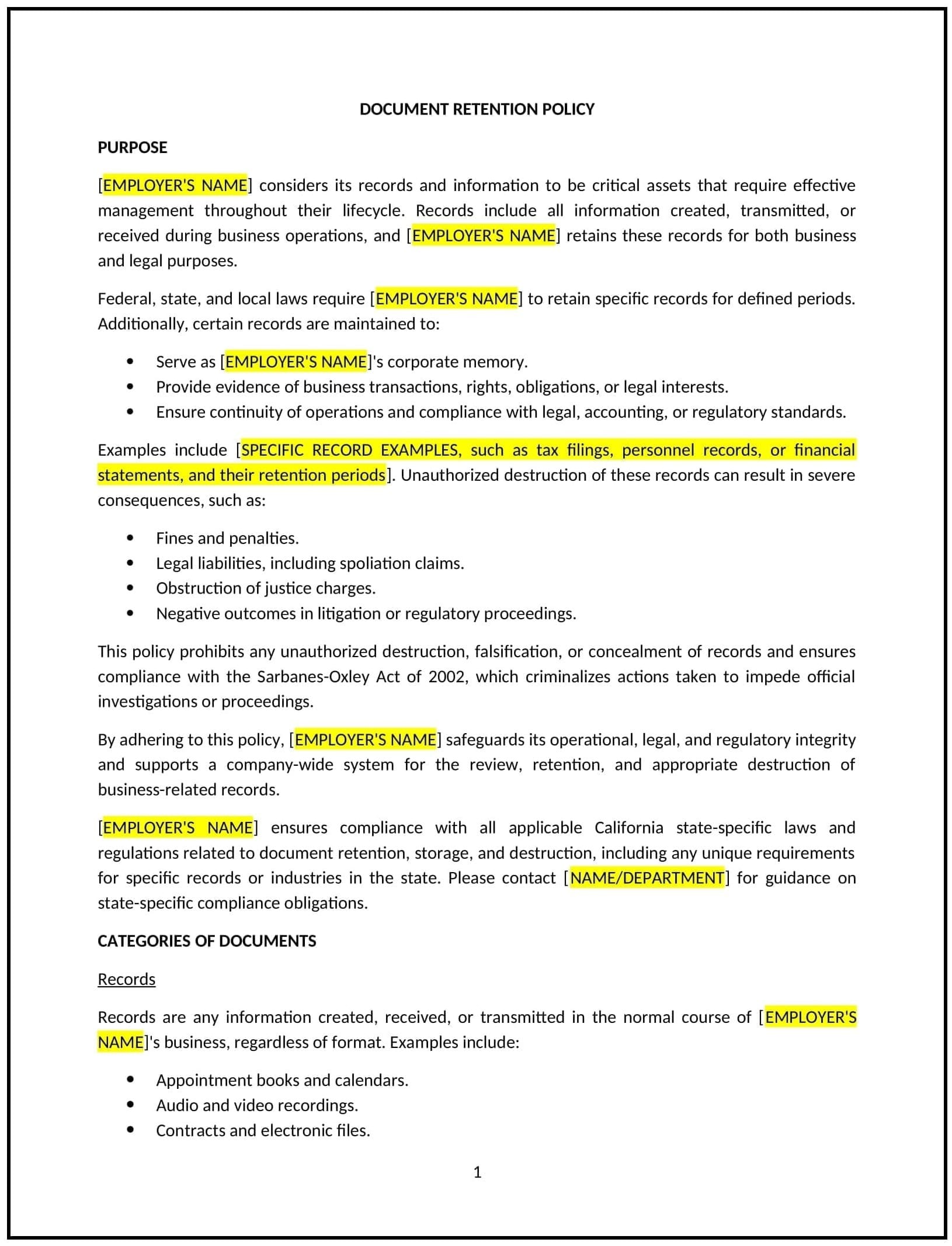Document retention policy (California): Free template
Got contracts to review? While you're here for policies, let Cobrief make contract review effortless—start your free review now.

Customize this template for free
Document retention policy (California)
In California, a document retention policy provides businesses with guidelines for managing the storage, maintenance, and disposal of records in compliance with state and federal laws. This policy ensures that critical documents are retained for the required timeframes while supporting operational efficiency and legal compliance.
This policy outlines categories of records, retention periods, and processes for secure disposal. By implementing this policy, California businesses can reduce risks, support compliance, and ensure effective information management.
How to use this document retention policy (California)
- Categorize records: Define types of documents covered by the policy, such as financial records, employee files, or client contracts.
- Set retention periods: Specify how long each category of documents must be retained, reflecting California laws and business needs.
- Outline storage procedures: Provide guidance on securely storing documents, whether in physical or digital formats.
- Address disposal methods: Detail procedures for securely disposing of documents after the retention period, including shredding or digital deletion.
- Communicate responsibilities: Assign roles for managing document retention, ensuring accountability across teams.
Benefits of using this document retention policy (California)
This policy offers several advantages for California businesses:
- Supports compliance: Reflects California laws governing document retention, such as employment and tax regulations.
- Reduces risks: Helps the business avoid penalties or disputes by maintaining required records.
- Enhances efficiency: Promotes organized document management, reducing clutter and improving access to critical information.
- Protects confidentiality: Ensures sensitive documents are securely stored and disposed of.
- Encourages accountability: Clarifies roles and responsibilities for document management, minimizing errors.
Tips for using this document retention policy (California)
- Reflect California-specific laws: Address retention requirements for employment, tax, and other business records under state law.
- Use document management tools: Implement software to track retention schedules and automate secure document storage or disposal.
- Train employees: Provide guidance on adhering to the policy and using approved storage or disposal methods.
- Monitor compliance: Conduct periodic audits to ensure records are retained and disposed of properly.
- Update regularly: Revise the policy to reflect changes in California laws, business needs, or industry practices.